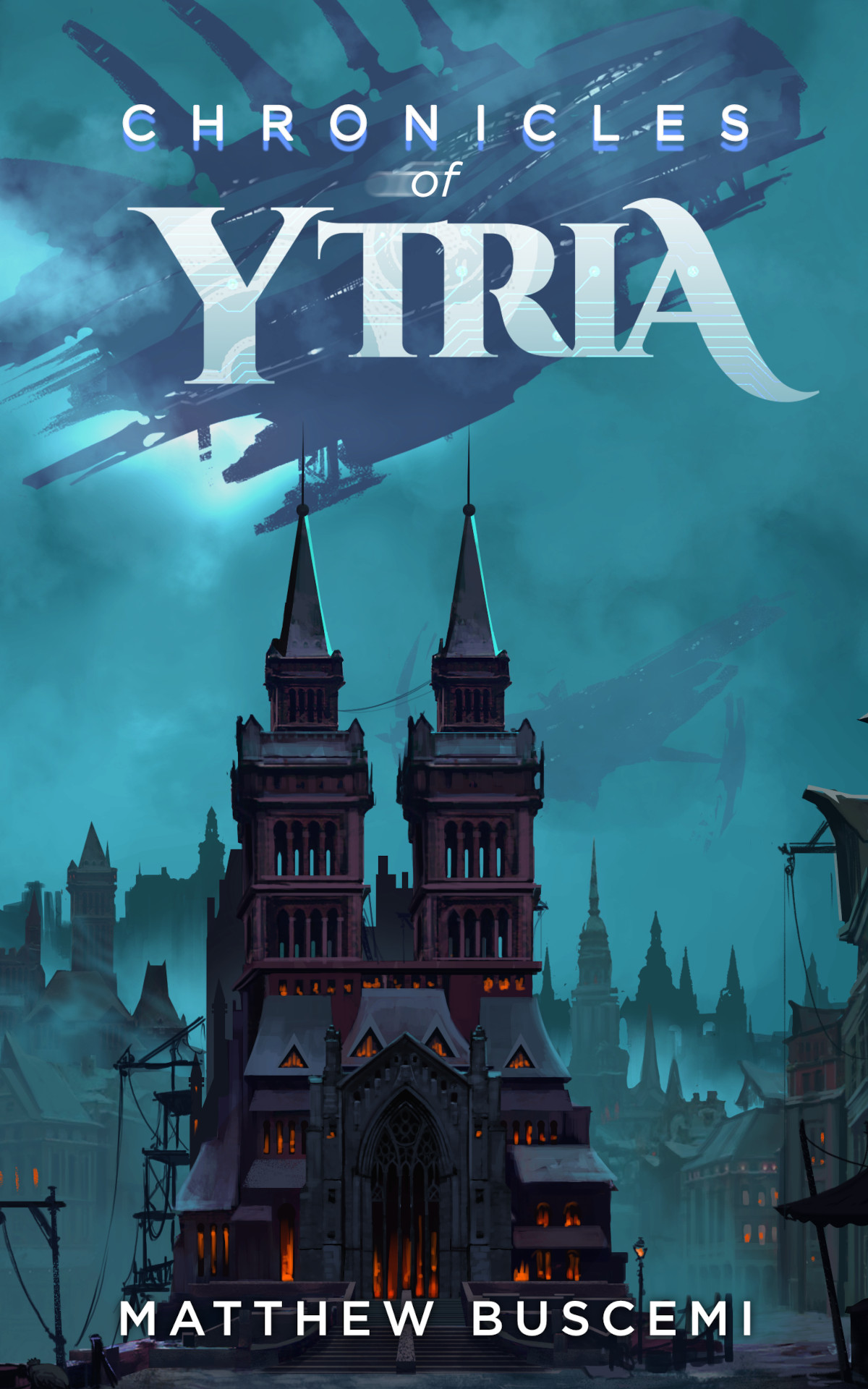Cover Reveal for Chronicles Of Ytria
Friday, June 11, 2021 at 6:05am

On a summer day in 2015, I attended a meeting of my third Seattle writing group. This one, unlike the previous two, was not a critique writing group, but merely a “sit down and write together” style of group, which was working out for me much better than the previous two.
At this particular writing group, I arrived at roughly the same time as two other members, and we sat down in our usual spot and began chatting. Within minutes, the guy sitting at the table next to us threw up his hands and said something like, “do you have to be, you know, talking around me?” To which our writing group leader replied something to the effect of, “this is a cafe.” He eventually moved on, but not before making a stink to the cafe staff and insisting our group shouldn’t be allowed “exclusive access” and marching back over to our group leader to insist that “she was wrong.”
Normally, I would spend some amount of time at writing group pondering what to write about. That day I was able to get directly to work, this individual’s behavior becoming the seed for “We Were Here First,” a short story I included in Transmutations of Fire and Void and later Transmutations.
During the middle months of 2020 I had finished up the first draft of Intersection Thirteen and decided to resume an old habit, learned at writing group, of writing one short story every week. For whatever reason, the world I’d created in “We Were Here First” came to mind. Only the countries of Reiar, Jeia, Yvenia, and Calens were mentioned in that first story, but I had it in my head that this region was something like medieval Europe, a continent littered with small polities.
The next story I wrote was “One’s Own Medicine,” for which I invented Wellesper and Qelem, and then “Ergo Sum,” for which I invented Semm. It was then that I decided that I needed to map this world out before I found myself accidentally creating physical paradoxes with nation placement.
The stories kept coming throughout 2020. I named the planet Ytria, and before long a kind of chronology was forming, one spanning a forty-year period in which the Consortium’s star maps classified Ytria wrongly. You can see the beautiful cover artwork created by Zhivko Zhelev at the top of this post. He’s very aptly caught the strange intersection of medieval and high technology cultures I was going for.
When I finished the last story in December, I surveyed the whole. Unsurprisingly, illness and plague were recurring motifs, as were disorientation, the loss of autonomy, and a sense of helplessness. There was also a sense in which I was responding to Star Trek’s depiction of the prime directive, the law that the spacefaring Federation must never interfere with less developed societies, the idea being that such interactions could only ever cause harm.
I agree that the core concept behind the prime directive is important to uphold, but the vigor with which it is implemented in Star Trek is, to my mind, an attempt to flatten a morally and ethically complex situation into an absolute.
On Ytria, there are three kinds of Consortium visitors throughout the stories: the malevolent, the careless, and the benefactors whose intent is to protect the natives from those first two groups. I found numerous occasions where my benefactors decided to bend or break the Consortium equivalent of the prime directive, and for good reasons.
For example, what may look like a ridiculous pipe dream to someone living in a medieval society and dealing with a plague may just, to the eyes of someone from a technologically advanced society, be recognized as a enormous scientific leap forward. An incapacitated benefactor may find himself needing to teach one native the workings of advanced technology in order to protect the rest of the continent. And another benefactor may be able to help open an early society’s eyes to the horrors that humans are capable of and the potential power of the words “never again.”
Look for these stories, the Chronicles of Ytria, to be available this August.









